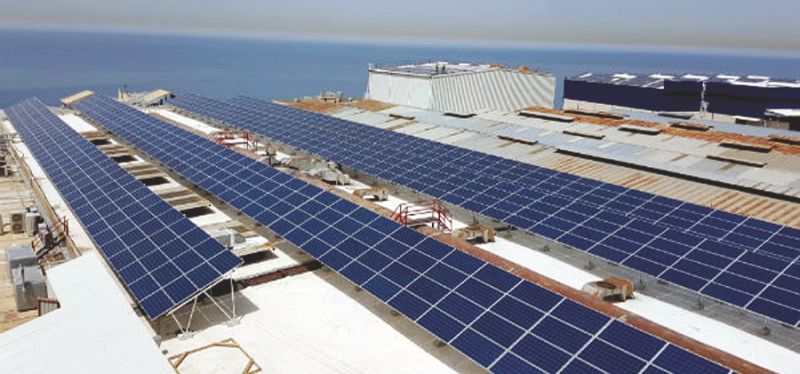Nexans inaugurated a new 600 kW-peak solar power system at its Liban Cables facility. By replacing one of its 6 electric generators with photovoltaic panels, Liban Cables will reduce greenhouse gas emissions by 750 tonne per year.
July 19, 2017

As part of its contribution to energy transition, Nexans, a global expert in cables and cabling solutions, inaugurated a new 600 kilo-watt peak solar power system at its Liban Cables Naher Ibrahim industrial facility North of Beirut, Lebanon. This project, co-funded by Liban Cables and the Global Environment Facility (GEF), will allow Liban Cables to reduce greenhouse gas emissions by 750 tonne per year by replacing one of its diesel generators with solar energy.
To address the electricity supply shortage issue, most companies in Lebanon rely on their own diesel generators. However, with around 300 sunny days in a year and over 8-9 hours of daily sunshine in Lebanon, solar energy presents a clean alternative that can reduce the need for diesel self-generation and lower the national utility electricity bill.
The 1,900 photovoltaic panels installed at Liban Cables and connected to the plant with Nexans solutions will generate over 938 mega-watt hours per year. This renewable energy will cover over 8% of the electricity needed by the plant to produce a wide range of building, industry and infrastructure cables.
The Liban Cables’ plant is one of the biggest renewable energy projects in the country and the first one to be completed within the framework of the Small Decentralized Renewable Energy Power Generation (DREG) Project.




